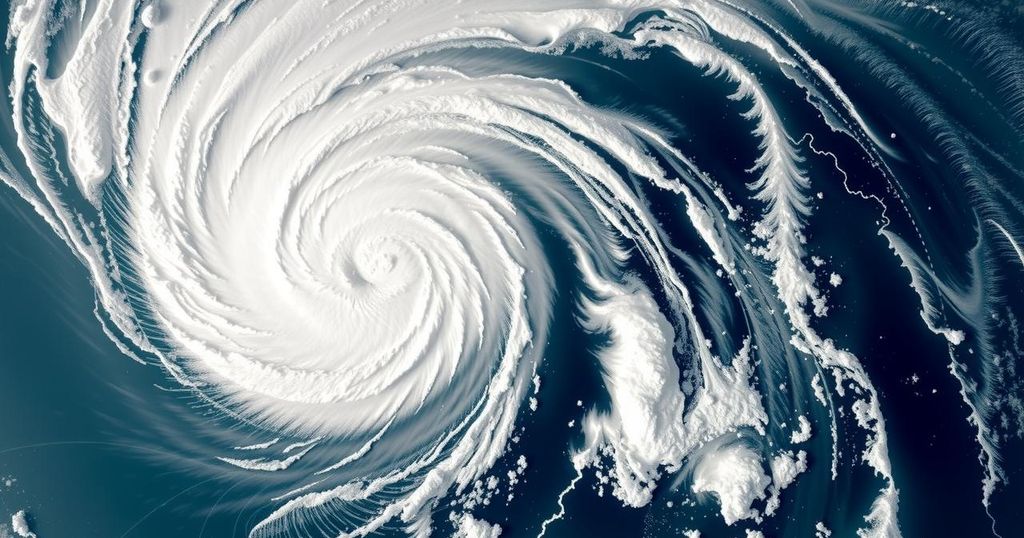Tropical Cyclone Dikeledi struck Madagascar over the weekend, resulting in three fatalities and causing flooding in Mayotte. Initially forming in the Indian Ocean, Dikeledi became a tropical cyclone with maximum wind speeds of 74 mph. It is projected to reintensify as it moves southward into Mozambique this week, affecting regional weather further.
Over the weekend, Tropical Cyclone Dikeledi impacted eastern regions of Africa, emerging as a significant weather disturbance. Initially forming between Indonesia and Australia on January 2, Dikeledi developed into a moderate tropical storm characterized by heavy rainfall and robust winds exceeding 39 mph (63 km/h) across the central Indian Ocean. Strengthening into a tropical cyclone on January 10, it reached sustained wind speeds of 74 mph, categorizing it as a level-one hurricane equivalent.
Dikeledi made landfall on Saturday in northern Madagascar, between the cities of Vohemar and Antsiranana, leading to extensive rainfall and strong winds that tragically resulted in the deaths of at least three individuals. Following landfall, Dikeledi weakened back into a tropical storm as it moved toward the Mozambique Channel, leaving destruction in its wake.
The cyclone then impacted the French territory of Mayotte, where heavy rains triggered flooding and mudslides, exacerbating the aftermath of Cyclone Chido from December. Emergency shelters were established for at least 14,500 displaced residents, who are expected to remain until the weather improves by late Monday.
Looking ahead, Dikeledi is projected to move southward down the Mozambique Channel. Meteorological models suggest that it could reintensify into a tropical cyclone, anticipated to bring severe weather, including heavy rains and thunderstorms, to parts of Mozambique. With forecasts indicating intensification to mean wind speeds above 100 mph by Wednesday and Thursday, the cyclone is likely to skirt the southern region of Madagascar.
Furthermore, unrelated weather phenomena were also observed in the Adriatic Sea, where stations in Croatia recorded significant north-easterly wind gusts of up to 60 mph, attributed to the Bora phenomenon, a notable cold wind characteristic of winter conditions. These winds are expected to diminish by Tuesday as conditions stabilize across the region.
Tropical cyclones, such as Dikeledi, originate from warm ocean waters and atmospheric conditions conducive to storm formation. Starting as mere disturbances, these systems can escalate into severe weather events, capable of extensive damage and loss of life, particularly in vulnerable regions like Madagascar and Mayotte. The meteorological implications also extend to surrounding areas, such as Mozambique, which can face the aftermath of such cyclonic activities. Historical instances have demonstrated how these weather patterns, when combined with local geographical features, can amplify the impacts of cyclones, leading to disasters like flooding and landslides.
In summary, Tropical Cyclone Dikeledi has posed a serious threat to eastern Africa, notably causing fatalities in Madagascar and significant disruption in Mayotte. As the cyclone tracks southward, there are concerns about its reintensification and the potential impact on adjacent regions, particularly Mozambique. Furthermore, associated weather phenomena, such as the Bora winds in the Adriatic region, highlight the intricate interplay of meteorological systems across different geographic areas.
Original Source: www.theguardian.com






